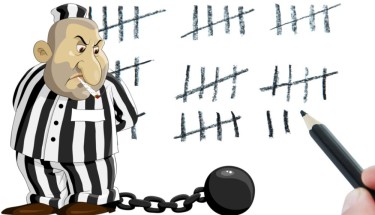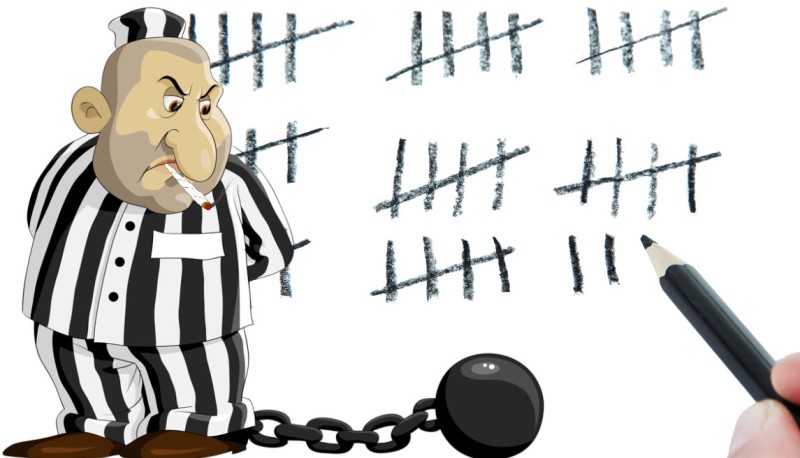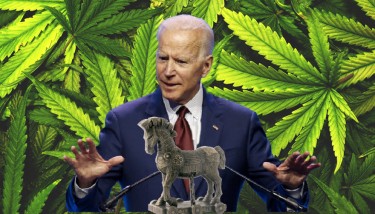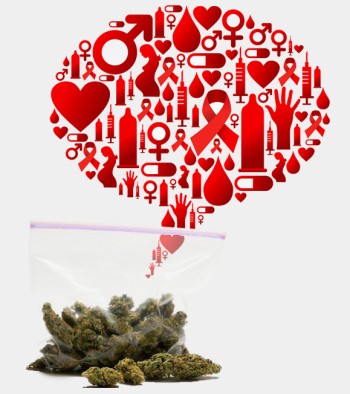
In accordance with President Joe Biden's plan to modify federal marijuana laws, the U.S. Sentencing Commission (USSC) believes that over 6,500 Americans are qualified for pardons.
Earlier this month, Biden unveiled a broad, three-pronged plan to pardon all federal convictions of simple possession of marijuana, ask all state governors to grant amnesty for similar offenses at the state level, and start a reassessment of how marijuana is classified under federal law.
According to Morgan Fox, political director for the organization, National Organization for the Reform of Cannabis Laws, Biden's action acknowledges the issue of widespread marijuana-related incarceration.
Anyone found guilty of marijuana distribution or sale will not be eligible for a pardon. In addition, authorities claimed that no one is currently serving time in a federal jail for marijuana possession alone. However, the change will make it easier for individuals to apply for federal aid, and locate housing, a job, or a college.
ESTIMATE OF PEOPLE AFFECTED BY THE PARDON
Since then, the USCC has published a news advisory outlining its projections for those who the federal pardons may affect. According to the USCC's study, 6,577 American individuals will be absolved under Biden's pardon, which takes into account federal data going back to 1992. It was discovered that the majority of people who qualify for assistance reside in the southwestern or mid-Atlantic regions of the United States of America.
The Department of Justice for the US states that a presidential pardon is just a gesture of the President's forgiveness and typically is granted in recognition of the applicant's admission of culpability for the offense and established good behavior for a substantial period of time following conviction or conclusion of a sentence. Innocence is not implied by it. It does, however, eliminate any civil restrictions (such as limitations on the rights to vote, hold government or municipal office, or serve on a jury) imposed as a result of the sentence for which the pardon is requested and should decrease the stigma associated with the conviction. A license, bond, or job may be obtained with its assistance.
President Joe Biden declared his intention to pardon all previous Federal convictions of simple cannabis possession on October 6. In addition, the president stated that he was urging governors to take equivalent measures.
The procedure of having some marijuana convictions expunged, dismissed, otherwise overturned, or sealed from public view is currently explicitly made easier by legislation that has been passed by close to two dozen states. The records of more than two million persons with previous marijuana convictions have been sealed or expunged as a result of these laws by state and local officials across the country. More than 30,000 people with low-level marijuana convictions have also received estimated pardons from the governors of Washington, Colorado, Illinois, and Nevada.
ANOTHER ANGLE TO THE PRESIDENTIAL PARDONS
According to a piece published by The Marshall Project, the president's cannabis clemency is implausible and shouldn't be anticipated to result in a large-scale prison release.
According to the report, bold acts of mass clemency won't result in many prisoners being released; in fact, they won't result in any. There is no one now detained by the federal government for marijuana possession alone, according to the White House and a study released this week by the U.S. Sentencing Commission (USSC).
Professor of criminal justice Barry Latzer outlines the process in an opinion piece for the New York Daily News. In federal court in 2020, less than 800 cannabis possession cases were handled. Only 160 of them resulted in jail terms, the average of which was six months, and about half resulted in convictions, the majority through guilty pleas.
Typically, federal law enforcement is not entrusted with conducting the type of enforcement that results in drug offenses arrests. Drug possession is a subject for local law enforcement outside of interstate travel and particular locations under federal jurisdiction, such as the U.S. border.
DIFFERENT VIEWS ON BIDEN'S DECISION
Following the declaration, some of the president's Republican detractors attacked him.
"Joe Biden is awarding blanket forgiveness to drug criminals in the middle of a crime surge and on the verge of a recession," claimed Senator Tom Cotton, a Republican from Arkansas. "This is a last-ditch effort to divert attention from failed leadership."
The call on Mr. Biden to act has come from advocacy groups, notably those that speak for minorities, as a means of proving his commitment to changing the injustices ingrained in the criminal justice system.
According to Inimai Chettiar, federal director of the Justice Action Network, the president's action is a tremendously good step and Mr. Biden's policy's instruction to assess how future marijuana offenses are prosecuted is one of its most crucial components.
According to Ms. Chettiar, "it is seeking to overturn a policy choice that was made that cannabis is as harmful as these other substances, something we know is not true.
The sheer act of possessing marijuana is a crime that is nearly fully punished by the states, according to Princeton University professor and ex-American Civil Liberties Union deputy national political director Udi Ofer. According to him, the federal government frequently prosecutes marijuana trafficking offenses.
Out of roughly 20,000 drug convictions in 2017, only 92 persons received sentences for federal marijuana possession offenses, according to the USSC.
This is a speck in the ocean of injustice, Mr. Ofer said. It's a significant political statement, it's an essential key statement, and it signifies progress he added.
According to DISA, a significant drug-testing organization that follows state legislation involving marijuana, cannabis already is completely legal in around 20 states, and several additional states have lessened criminal penalties. In a few states, it is still completely banned. From the time the president made his remarks forward, the federal authorities will no longer prosecute people for simple possession, according to officials.
BOTTOM LINE
The United States Sentencing Commission estimates that about 6,500 prisoners from 1992 till date are eligible to be recipients of the presidential pardon for cannabis possession crimes. Although some reports claim that there are no persons in prison for minor possession crimes so no one is actually beneficiary to this pardons, and some others feel it is just propagandas.







